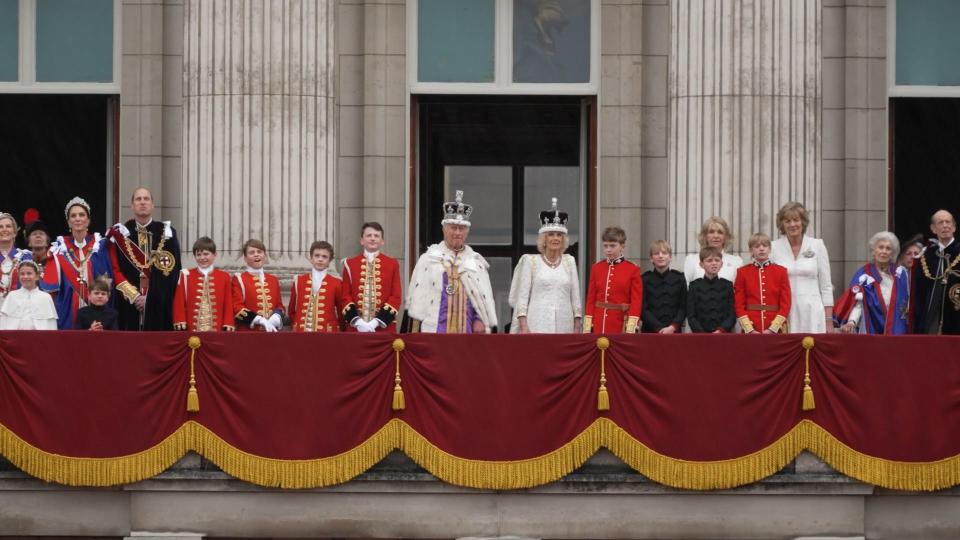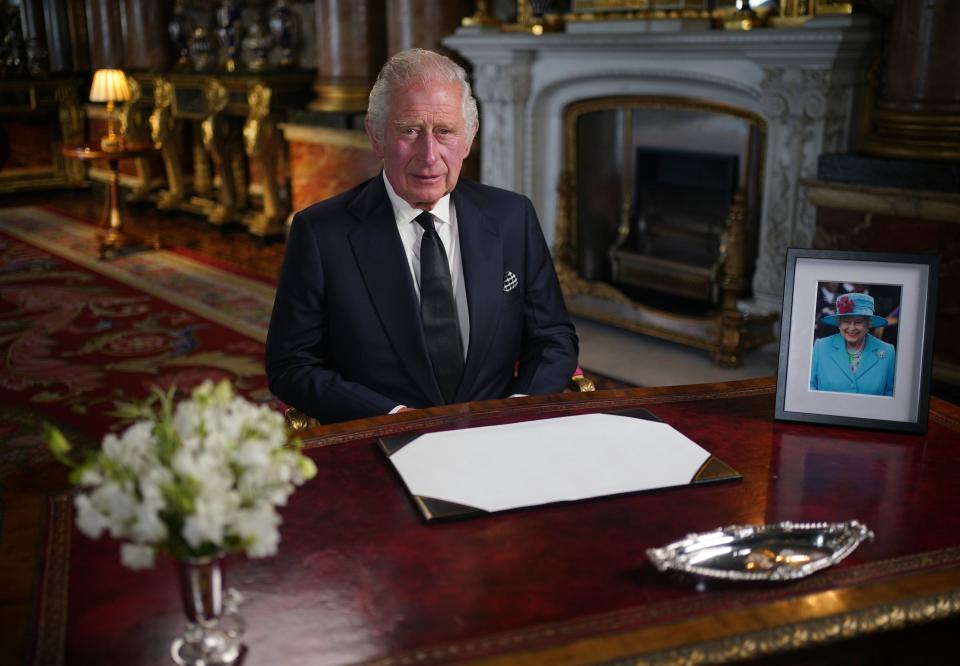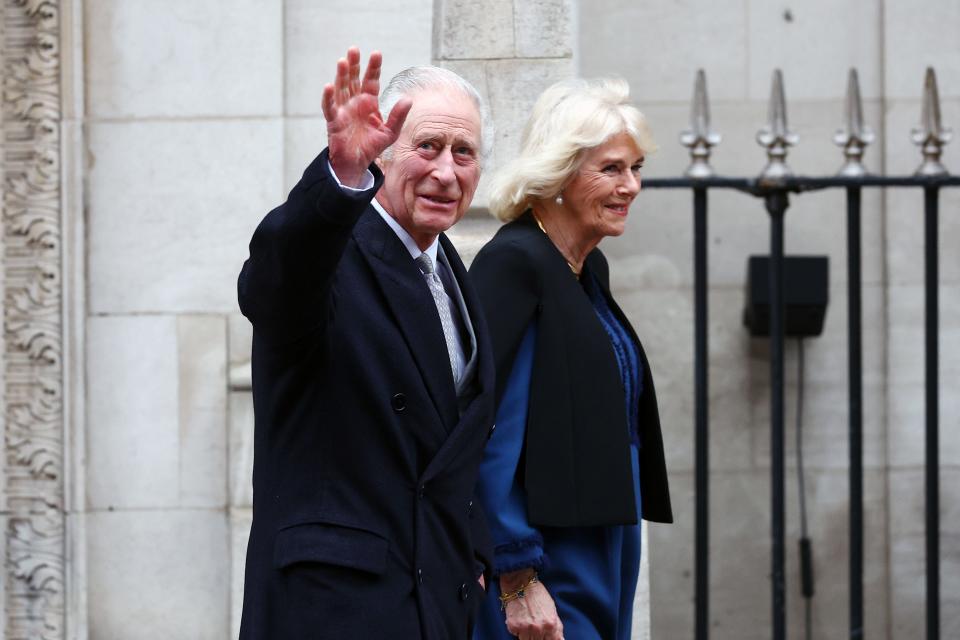Will King Charles abdicate? The fate of the throne, according to experts
If cancer were to cause King Charles III to abdicate the throne, the move would be wholly unexpected, virtually without precedent and a push into uncharted waters.
Many royal experts are blunt in their skepticism. "It'll happen 10 minutes after hell freezes over," says Majesty magazine managing editor Joe Little.
Carolyn Harris, royals expert and history instructor at the University of Toronto School of Continuing Education, suggests only scandal would prompt the move: "In Britain, you don't see peaceful abdications."
What's more, the powerful legacy of Queen Elizabeth II's shining serve-unto-death example, and the complexity of engineering an abdication, also will prove obstacles for such a development.

But still, if the unthinkable were to happen, "King Charles III likely wouldn't be seen often in public," says Harris. He would focus on his health, and little more, she says.
The king would have to be severely incapacitated to decide to abdicate, considering "the examples of his mother and father to keep calm and carry on," Harris says. "They will have had a huge impact on him to carry on with this until the end of his life."
The only other British king to abdicate in recent memory is, of course, King Edward VIII in 1936, who passed the throne to his brother George VI, Queen Elizabeth's father.

His decision was driven not by illness, but rather by a desire to be with divorced American socialite Wallis Simpson. The affair was considered a scandal in deeply religious and conservative England. Edward and Simpson moved to Paris and were essentially estranged from the extended royal family for the rest of their lives.
If Charles were to take this unexpected step, "another complication is that he is the king of 14 Commonwealth realms, and they'd all have to be on board with an abdication," Harris says. "There's a statute that says the United Kingdom can't make changes to the monarchy without consulting all the countries, so you’d be looking at meetings with prime ministers of Canada, New Zealand and beyond before this could happen."
King Charles III's cancer diagnosis: Prince William likely to step up, experts say
Abdication is not nearly as uncommon in other monarchies, experts say. Queen Margrethe II of Denmark abdicated last month after back surgery complications; Emperor Akihito of Japan in 2019, for health reasons; and King Juan Carlos I of Spain in 2014, for personal reasons.

The other option facing Charles is to pass his duties on to his eldest son through the Regency Act, which serves to protect the monarchy should the king or queen become truly incapacitated.
The provision harks back to the 18th-century Regency period and the so-called madness of King George III, who had acute porphyria, which brought on hallucinations, nausea and pain. His duties were assumed by his son, the Prince Regent, who ultimately became King George IV.
King Charles is battling cancer. What happens to Queen Camilla if he dies or abdicates?
"It's never been invoked in modern times, but should that happen, the Prince of Wales (William) would take over the major functions of his father," says Little. "But honestly, depending on (Charles') condition, it is just as easy for him to continue functioning as king but perhaps without the public appearances."
Little adds that for Charles, giving up the throne may not be an option.
"Charles has waited so long to be king, considering how long his mother lived and ruled, and now this has befallen him (less than) two years into his reign," Little says. "He's stoic. He will carry on."
This article originally appeared on USA TODAY: Will King Charles abdicate the throne? Here's what experts say.
